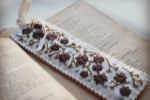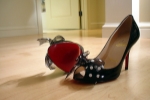
如何有效练习英语作文【一】
考辅P42
1.IgaveTomthebook.//
2.Heboughthismothersomeflowers.//
3.Thebridgewasbuiltbyworkerslastyear.//
4.Wehavetofinishtheworktoday.//5.Hewilldohishomeworktomorrow.//
6.Wecleantheroomseveryday.//7.Thewriterspent3yearsonthebook.//
8.Itisabookwithalotofbeautifulpictures.//
9.Thebooksoldverywellduringthefirstweek.//firstweek.
10.Marywastheonlyoneintheoffice.//
11.Shefinishedherworkat10o’clock.//Shedidn’12.Shehadtotakeataxihomebecauseitwastoolate.
13.LizaandMikearrivedattheGreatWallintwohours.
14.Theywerehappytogettothetop.//
15.TheyenjoyedthemselvesontheGreatWall.//
16.ThepostmansentSusanandTommyapaperbox.
17.Theyopeneditandfoundapresentfromtheirfriend.
18.Theybothlikedthepresentandfeltveryhappy.
19.Alicedidn’tfeelwelltoday,soshewenttothehospital.
20.Thedoctoraskedhersomequestions.//
21.Thedoctordidn’tgiveheranymedicineintheend.
(全真1)
1.ThecapitalAirporthasbeeninusefor20years.//
2.ThecapitalAirportisthelargestoneinChina.//
3.Ihavenevertakenaplane.MyfriendLiPing,either.//
(全真2)
1.Fathergave$20formetobuysomebooks.//
2.IwasexcitedwhenIsawsomanygoodbooksinthebookstore.
3.ButsomebookswouldcostmorethanIhave.//
ButIdidn’//(全真3)
1.ManyChinesefriendswenttotheparty.2.Tonywasgivenalotofpresentsbyhisfriends.//Tony’
3.SeeinghisChineseteacheratthepartymadeTonyveryhappy.//(全真4)
1.Iwanttoeatsomething.//2.Therefrigeratorisempty.//3.Bobspentfifteenyuanonthehamburger.///(全真5)
1.Mr.Wangdoesn’tworkinthatfactoryanylonger.//
2.Mr.Wanglefthomeearlierinordertocatchthebus.3.Mr.Wangfindsitnoteasytogetalongwiththatyoungguy.//(专家1)
1.Manypeoplewentshoppingyesterday.
2.Janespent4hourstobuyNewyeargifts.//
3.Shewassotiredthatshecouldn’twalkanylonger.//
(专家2)
1.Myfriendssaidtome,“Areyoufree?”
2.Shewantedmetogoshoppingwithher.
3.Shethinksitapleasuretogoshoppingwithafriend.
如何有效练习英语作文【二】
1. Nancy is too young to dress herself.
Nancy is not _____ _____ to dress herself.
2. My watch doesn't work well.
There is ____ _____ _______ my watch.
3. Jane doesn't go to work by bus any longer.
Jane ____ _____ _____ to work by bus.
4. It took Mary two weeks to prepare for the exam.
Mary _____two weeks____ ______ for the exam.
5. It seems that they have known each other.
They seem to _____ _____ each other.
6. "My grandpa doesn't like coffee or coke" said Bob
Bob said that _____grandpa liked _____coffee _____coke.
7. Cao Fei joined the League three years ago.
Cao Fei _____ ____ _____ the League for three years.
8. I prefer walking there to going by bus.
I prefer to walk there ____ _____ going by bus.
9. -Thank you very much. -You're welcome.
- ____ a lot. -Not at____ .
10. Kitty does well in English.
Kitty ____ ____ ____ English.
11. They realized Hainan was a beautiful place after they reached there.
They____ realize Hainan was a beautiful place_____ they reached there.
12. We will have to finish the work hardly if you don't help us. We can't finish the work _____ _____ ______
13. My dictionary isn't so thick as yours.
My dictionary is _____ than yours.
14. Could you tell me where the East Street Hospital is? Excuse me, ____ is the _____ to the East Street Hospital?
15. The book is exciting to read.
It is ____ _____ read the book.
16. Jack's mother asked him, "Have you packed your things?" Jack's mother asked him ____ he ____ packed his things.
17. She likes singing better than dancing. She ____ singing ____ dancing.
18. Remember to ring me up as soon as you get to Nanjing Make ____ to give me a ring as soon as you _____ Nanjing.
19. They couldn't catch the train because of the heavy traffic. The heital?
15. The book is exciting to read.
It is ____ _____ read the book.
16. Jack's mother asked him, "Have you packed your things?" Jack's mother asked him ____ he ____ packed his things.
17. She likes singing better than dancing. She ____ singing ____ dancing.
18. Remember to ring me up as soon as you get to Nanjing Make ____ to give me a ring as soon as you _____ Nanjing.
19. They couldn't catch the train because of the heavy traffic. The heavy traffic _____ them from _____ the train.
20. My brother has been away from home for two days.
My brother _____ home two days _____ .
21. Li Lei decided to move to Canada when he was thirty.
Li Lei made a _____ to move to Canada at the _____ of thirty.
22. Jim was too careless to pass the exam last term.
Jim was not_____ _____ to pass the exam last term.
23. If you don't hurry up, you can't catch the train.
Hurry up, _____ you may _____ the train.
24. Yang Li wei said to us, "I'm going to visit your school tomorrow. " We were all pleased.
We were all pleased when we heard Yang Li wei_____ visit_____ school the next day.
25. This is the most interesting film I have ever seen. I have ____seen _____ an interesting film before.
26. I was late for school because of the traffic accident. The traffic accident _____ me _____ getting to school on time.
如何有效练习英语作文【三】
本书是日本著名的“笔记本作家”奥野宣之创作的工具类书籍,作者向我们展示了一种令人震撼的全新读书方式,一种从求知到融会贯通再到持续探索,再去求知的一个获取知识与信息的闭环,而我们则是“被动”的享受在其中。作者通过浅显易懂的比喻、案例结合自己实际操作的图片,让初学者很容易养成这种好的读书习惯。“至今为止,你读过那么多书,到底记住了多少内容呢?”作者用这样的灵魂拷问把我们带入到了他的读书笔记世界。
“在此时此刻觉得没必要记录的东西,在未来可能会影响你的态度和即将发生的事件的结果,甚至为工作提供启示。”凭借着这种对“随时记录令自己感兴趣的信息和感悟”的重要性这一点达成的共识,作者很容易的把我们带到了阅读之前就开始记笔记的道路上。因着一段时间内自己的爱好或者工作需要而主动选择想要阅读的书,在阅读积极性上自然就要高一些。接下来作者通过案例介绍了记读书笔记的几种技巧:可以书写任何内容、按时间顺序书写、附上日期、灵活运用速记或略记、可以粘贴任何跟笔记内容相关的文字、剪报、照片等等。这样自己用心制作摘抄的过程会有一种仪式感,帮助自己把记读书笔记的习惯延续下去,另外,按格式标注统一的日期不仅对以后的检索有帮助,它还回避了时间的压力,无需给自己定任务,减少了记笔记的抵触感。
不仅如此,当你抱着要记点什么的心态去读书时,往往会更加在乎作者想要表达的内涵,往往会再思考一下作者写这个故事或者案例的意图。当你读完一整章而什么也没记的时候,你会突然发现“呀,怎么就到下一章了”然后,放下书仔细思考这一章,问自己“难道没什么收获?”或者回看这一章的目录仔细回想……这样坚持记读书笔记的感觉太美好了。
当我们被作者引导而体会到了记读书笔记的好处时,他紧接着告诉我们:别急,还有更妙的。如何让读书笔记真正融入我们的思想和知识系统,使你自然而然的变成了一个博学、富有创造力的人。是的,这很很神奇,但作者用案例告诉你这也许一点都不难。
“所谓创意,只是把原有的元素重新组合而已。”美国广告大师詹姆斯·韦伯·扬在《创意的生成》一书中如是说。可能很多人跟我一样,对“创意”、“设计”、“营销方案”等字样儿保持着相当的“敬畏”之情,因为总觉得这些都需要“灵感”之类的神秘力量垂青,才会在你脑子里“咔嚓”一声蹦发出来。读了这本书之后我的信心增加了,因为像我一样“不怎么受垂青”的人通过信息的积累,科学的存储,养成良好的回顾习惯,找到信息与信息之间正确的碰撞方式,我们都可以做到在自己需要解决问题的时候,拿出有用的信息,使之发挥作用,变成你脑中一个不错的注意,或者笔下一篇应题的文章。所以,有感兴趣的问题时不要无动于衷,应该马上查找、翻阅笔记。在参考读书笔记的同时回想当时的思路,再与现在更成熟的思想相比较,从而获得更多的知识和信息。这样的读书方法才能真正让书融入自己的思想,是普通的重读无法比拟的。
凭着自己感兴趣的点选书是自己有意识的去获取信息,比盲目的拿起一本书来读,做到思维集中要容易的多。带着写读书笔记的目的来阅读,更加有效的迫使你思考,尽可能多的获取作者想要表达的思想并使之升华。经常回顾曾经的思维火花——读书笔记,把握任何让自己思考的时机,有感兴趣的问题,有灵光一现的感悟,有工作上的需要,都可以凭借着检索系统快速的找到对应的笔记,对照自己当时的想法跟现在信息碰撞出新的创意,这就是读书笔记的回馈,它成为了你自己的思想,并随时准备着接受新的信息,不断的学习、成长。如果检索发现没有这一类的笔记怎么办,那么恭喜你,又可以去找书了,再一次投入到寻找自己需要的知识这一美好的过程。
就是这样,本书介绍的读书方法会让你不停思考,不停回顾,不停探索,永远处在获取智慧的快车道当中,一路狂奔!
如何有效练习英语作文【四】
书中自有黄金屋,书中自有颜如玉,书中还有无穷无尽的智慧和你想要的一切。花了6个半小时读完了这本书,也做了一些笔记,虽然“浪费了时间,但是没有浪费人生”“引用是魔杖”引用文章不仅可以增加说服力,还更容易组织文章。
读书不再是“随随便便”地读,而是带着明确的目的、充满主动性地去读,真正消化书中的信息并加以运用转化成为属于自己无形的财富。从最初说到的如何选书:选择自己喜欢读的书。如何购书:怎样买到对自己真正有益的书。如何读书:加深理解,深入思考。如何活用:运用书中获得的知识。再到后面的“葱鲔火锅式”读书笔记:“摘抄”和“评论”并存的特征,正如菜中鱼肉和大葱的关系一样。摘抄的第一个好处是可以促进、加深对书的记忆。第二个好处:加深理解,在摘抄的过程中你很容易能发现作者的反复思考、藏在文章里的机锋。评论的好处是:把自己读书时的感想、一闪而过的想法立即落实到纸上,哪怕只是一句话。
写几句“好棒”“什么”也未尝不可,如果一不小心想写得完美,只会让自己越来越难下笔如果说读书是为了丰富自己的思想,那么读书笔记的作用就是让自己更有深度。
如何有效练习英语作文【五】
(一)改写一般疑问句:
(1)原句中有be动词的,将be动词提前,其他顺序不变。
例如:Thisisacat.变为Isthisacat?
(2)原句中有情态动词的(can/may/shall/would)将情态动词提前,其他顺序不变。例如:Hewouldlikeapie.变为Wouldhelikeapie?
(3)原句中是一般动词的,在句首加助动词do或dose(用于主语是第三人称动词单数的句子),其他顺序不变。例如:Iplaytheguitar.变为Doyouplaytheguitar.
(4)原句中的some变any。
注:以情态动词开头的一般疑问句,并且要求对方做肯定回答的`some不变。
(5)原句中的第一人称改为第二人称。例如:Iamanurse.变为Areyouanurse?
(6)以dose开头的一般疑问句,原来动词的第三人称单数形式要变回原形。例如:Hereadsastorybook.变为Dosehereadastorybook?
(二)改写否定句:
(1)原句中有be动词的,直接在be动词后面加not。例如:Itisadog.→It’snotadog./Itisn’tadog.
(2)原句中有情态动词的,直接在情态动词后加not。
例如:Iwouldlikeahotdog.→Iwouldnotlikeahotdog.
(3)原句中是一般动词的,在一般动词前加don’t或doesn’t(用于主语是第三人称单数的句子),doesn’t后面用原型。例如:Iseethreehamburgers.→Idon’tseethreehamburgers.
原句中的some变any例如:Ihavesomebreadan
dmilk.→Idon’thaveanybreadandmilk.
(4)以let开头的祈使句,如果是letus或letme,直接在其后加not;如果let后面其他人称代词宾格(you、him、her、them、it)就在let后面加助动词don’t。例如:Letusgotothepark.→Letusnotgotothepark.再如:Letthemdohomework.→Don’tletthemdohomework.
(三)对划线部分提问:
对划线部分提问,就是先把一个陈述句的划线部分去掉,然后变为一个特殊疑问句:一是特殊疑问句+一般疑问句;
二是特殊疑问句+陈述句(对主语或主语的定语提问,therebe结构除外)
⑴划线部分是人,用who提问。
⑴划线部分是主语,用who提问,who后面的动词要用第三人称单数形式。如:Whois;Wholikes;Whohas?
方法:who+原句的剩余部分
例如:①HelenandMikearelisteningtomusic.
→Whoislisteningtomusic?
②Ihavesomemodelplanes.
→Whohasanymodelplanes?
⑵划线部分是表语,用who提问。
方法:Who+剩余部分的一般疑问句形式
⑵划线部分是事或者物,用what提问。
方法:what+剩余部分的一般疑问句形式。
注:如果原句是therebe句型,直接用What’s+地点状语来提问。例如:①Wewouldliketobuysomethingsforaparty.
→Whatwouldyouliketobuyforaparty?
②Therearealotofcakesintheplate.
→Whatisintheplate?
⑶划线部分是物主代词或名词所有格,用Whose提问。
方法:⑴划线部分是主语的定语时,Whose+剩余部分
例如:Ourclassroomisbright.
→Whoseclassroomisbright?
⑵划线部分是表语或表语的定语时,Whose+剩余部分的一般疑问句形式例如:①ThewomanisSuYang’steacher.
→Whoseteacheristhewoman?
注:对某部分的定语提问,被修饰的部分跟随特殊疑问句往前提②ThispurseisYangLing’s.
→Whosepurseisthis?
⑷划线部分是地点,用where提问。
方法:where+剩余部分的一般疑问句形式
例如:TheyarehamingaMathslessonintheclassroom..
→WherearetheyhavingaMathslesson?
⑸划线部分是“多少”,用howmany或howmuch提问。
方法:⑴句中是可数名词的用Howmany+剩余部分的一般疑问句形式例如:Therearefifteentreesintheplayground.
→Howmanytreesarethereintheplayground?
⑵句中是不可数名词的用Howmuch+剩余部分的一般疑问句形式例如:Ihaveaglassofjuiceforbreakfast.
→Howmuchjuicedoyouhaveforbreakfast?
⑹划线部分是时间,用when或whattime(具体的几时几分)提问。方法:⑴when+剩余部分的一般疑问句形式
例如:SuYangandSuHaiareathomeonSundaymorning.
→WhenareSuYangandSuHaiathome?
⑵问具体的时间直接用Whattimeisit?或What’sthetime?问
例如:It’sthreeforty-five.
→Whattimeisit?或What’sthetime?











